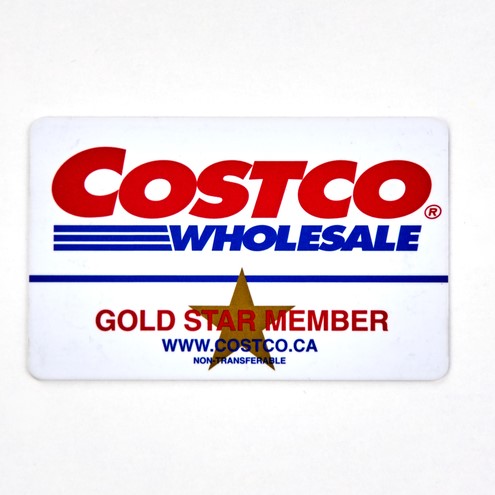Shopping at Costco, a popular warehouse club known for its bulk purchases and savings, has recently become the center of controversy among its members. The issue at hand? Wasteful shopping habits that not only lead to financial loss but also increase environmental burdens. This article delves into the critical voices from within the Costco community, exploring the underlying causes and highlighting personal anecdotes to paint a comprehensive picture of the situation.
1. Bulk Buying Pitfalls
One of the main attractions at Costco is the ability to buy in bulk, but this can also be its Achilles’ heel. Many members find themselves purchasing more than they need, seduced by the perceived savings and large quantities. This often leads to excessive food waste as perishables expire before they can be consumed. A study has shown that such habits are not only financially wasteful but also environmentally detrimental.
The allure of ‘saving more’ by buying in large quantities frequently backfires, leaving households with spoiled goods. This issue is compounded for those living in smaller spaces, where storing bulk purchases becomes a logistical nightmare. Discussions on platforms like Reddit have brought to light the frustration felt by many members who regret their oversized purchases.
Experts suggest that shoppers should plan their purchases more carefully, especially when buying perishable items in bulk. This not only prevents waste but also helps in managing home storage issues, ultimately leading to a more sustainable shopping practice.
2. Misplaced Items and Food Safety
A disturbing trend among Costco shoppers is the misplacement of perishable items in non-refrigerated aisles. This not only leads to food spoilage but also poses serious food safety risks. An incident reported on AOL highlighted a case where raw bacon was left on shoeboxes, a clear fridge section mishap that resulted in the item being discarded.
These actions reflect a broader issue of disrespect towards store property and disregard for other shoppers’ safety. Such behavior is often the result of rushed shopping trips where individuals fail to return items to their appropriate places, exacerbating waste and risking contamination.
Costco has been encouraged to monitor these behaviors more closely, with suggestions from the community to increase surveillance and impose stricter penalties on those who habitually disrespect the shopping environment.
3. The Issue of Overbuying
Overbuying is a common trap for many Costco shoppers. Driven by the fear of missing out on good deals, customers often purchase items they don’t need. This issue is particularly pronounced during sales or special offers, where the excitement can lead to impractical buying decisions.
Such behavior not only clutters homes but also leads to significant financial waste. The psychological impact of ‘deal hunting’ can obscure rational decision-making, causing shoppers to spend more while saving less.
Financial advisors often recommend setting clear shopping goals and sticking to a list to avoid the pitfalls of impulse buying. This strategy ensures that purchases are both necessary and beneficial, reducing the occurrence of buyer’s remorse and financial strain.
4. Environmental and Ethical Concerns
The environmental impact of wasteful shopping is significant. The cycle of buying and wasting not only contributes to increased carbon footprints but also to the unnecessary production and disposal of goods. This behavior is at odds with growing consumer awareness about sustainability and the need for responsible consumption.
Many Costco members are now advocating for the company to take stronger stances on environmental issues, suggesting that Costco lead by example in promoting sustainable shopping habits among its members. Such initiatives could include better product labelling, promoting products with longer shelf lives, and offering more environmentally friendly options.
This movement towards ethical consumerism is seen as a necessary step for large retailers like Costco, which have the power to influence significant positive changes in consumer behavior.
5. Coupon and Return Policy Frustrations
Costco’s policy of not accepting manufacturer coupons and the complexities of its return policies have also been sources of dissatisfaction among members. These policies, while designed to maintain low prices and simplify operations, can feel restrictive and unfairly penalizing to the consumer.
Many shoppers have expressed their frustrations on social platforms, citing these policies as reasons for reconsidering their memberships. A fairer, more transparent approach to returns and promotions could improve member satisfaction and loyalty.
Revising these policies to be more consumer-friendly could potentially alleviate some of the criticisms faced by Costco, particularly those related to financial and shopping management.
6. Membership Value Debate
The value of a Costco membership is increasingly being questioned, especially among those who do not buy in bulk or frequent the store regularly. The cost of membership may not justify the benefits received, particularly for those who are single, live in smaller households, or are minimalistic shoppers.
With alternative shopping options available, such as online markets and smaller retail outlets, the necessity of a warehouse club membership is being reassessed. Members suggest that Costco could improve by offering different levels of membership tailored to varied shopping needs and frequencies.
This debate highlights the need for flexibility in membership options to cater to a broader range of consumer needs and preferences.

